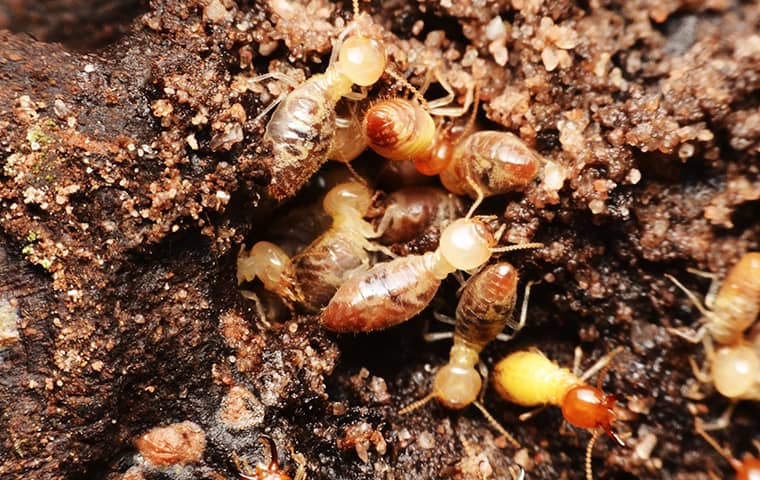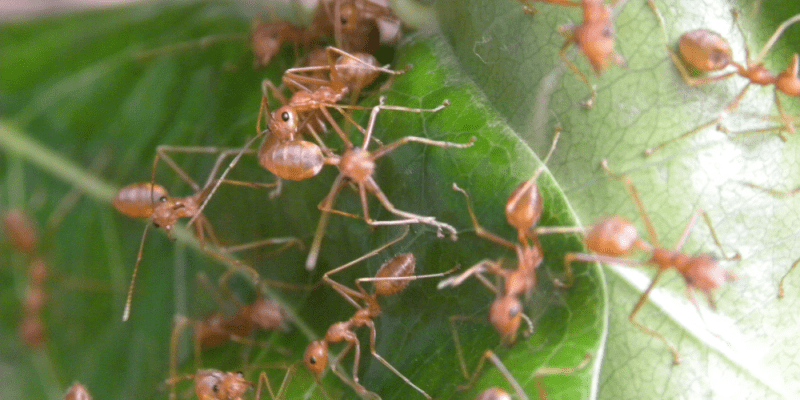Expert Ant Control Services: Personalized Therapies for Long Lasting Outcomes
Expert Ant Control Services: Personalized Therapies for Long Lasting Outcomes
Blog Article
Ecological Effect of Bug Control: Balancing Efficiency With Sustainability
The environmental effect of insect control is an essential problem that requires a fragile equilibrium in between achieving performance in making sure and handling parasites sustainability of our communities. From the usage of unsafe chemicals that leak into our dirt and water to the unintended consequences on non-target varieties, the consequences of traditional insect control methods are significant.
Unsafe Chemicals in Insect Control
The application of dangerous chemicals in parasite control presents substantial environmental and wellness threats that call for cautious factor to consider and reduction methods. Chemicals, herbicides, and pesticides are frequently used to eradicate bugs, but their prevalent application can result in unexpected effects. These chemicals can pollute dirt, water sources, and the air, influencing not only the targeted parasites however likewise beneficial pests, wild animals, and humans.

To attend to these threats, integrated insect management (IPM) strategies are being advertised as a much more sustainable option. IPM involves a mix of methods such as biological control, habitat control, and the targeted use of chemicals as a last option (ant control stokesdale nc). By embracing an all natural strategy to pest control, we can minimize the ecological and health and wellness impacts associated with dangerous chemicals while efficiently handling pest populations
Impact on Non-Target Species
Taking into consideration the unintentional consequences of pest control techniques, the impact on non-target types is a critical element that calls for extensive analysis. While pest control actions aim to target details insects, various other organisms in the ecosystem may be unintentionally affected. Non-target species, including advantageous bugs, birds, animals, and also plants, can endure straight or indirect harm from chemical applications or organic control methods.
Pesticides made to battle a specific insect bug might harm pollinators like bees or natural predators such as ladybugs. Organic control representatives, if not species-specific, can pose threats to unexpected targets, disrupting the eco-friendly balance.
To mitigate the effect on non-target types, integrated bug monitoring (IPM) strategies that emphasize an alternative strategy to pest control are recommended. These techniques focus on the usage of eco-friendly practices, lessening damage to valuable microorganisms while properly handling pest populations. Carrying out comprehensive threat analyses and keeping track of the outcomes of bug control efforts are important steps in protecting non-target varieties and advertising overall ecosystem health.
Soil and Water Contamination
Unintentional ecological consequences of pest control techniques expand past influencing non-target varieties, with considerable implications for dirt and water contamination - termite control services. Chemicals, herbicides, and chemical fertilizers made use of in parasite control can seep right into the dirt and infect groundwater, posturing a risk to both marine and terrestrial ecological communities.
Water contamination is another important problem connected with parasite control methods. Runoff from farming areas treated with chemicals can carry these chemicals into neighboring water bodies, impacting marine microorganisms and water high quality. Impurities in water sources can have far-reaching consequences, impacting not only aquatic life but also human wellness with the intake of polluted water or marine microorganisms. To alleviate soil and water contamination from bug control activities, integrated bug administration approaches that prioritize sustainability and minimize chemical inputs are crucial.
Air Contamination From Pesticide Usage
Exposure to airborne pesticides throughout agricultural applications positions a significant problem for air pollution control steps. When pesticides are sprayed onto plants, they can volatilize right into the air and kind unpredictable organic substances (VOCs) and various other airborne pollutants. These chemicals can add to the formation of ground-level ozone, a significant part of smog that can have harmful effects on human wellness, crop productivity, and overall air high quality. Additionally, pesticide drift, where chemicals are lugged by the wind to unplanned locations, can lead to the contamination of nearby ecological communities and water bodies.

Strategies for Sustainable Parasite Control
In the realm of agricultural practices, carrying out sustainable parasite control strategies is critical for maintaining environmental balance and securing crop yields. Sustainable pest control highlights making use of eco-friendly techniques to manage pest populaces properly while decreasing injury to non-target organisms and ecosystems. Integrated Insect Monitoring (IPM) is a commonly taken on approach that combines organic, social, physical, and chemical control techniques to attain lasting parasite administration services.
Plant rotation and diversity are additionally efficient strategies to interfere with pest life cycles and develop less beneficial conditions for bugs to grow. Ultimately, by incorporating these sustainable parasite control techniques, farmers can achieve an equilibrium in between pest administration performance and ecological stewardship.
Verdict
To conclude, the ecological influence of bug control approaches need to be meticulously thought about to stabilize efficiency with sustainability. Damaging chemicals made use of in parasite control can result in soil and water contamination, air contamination, and damage non-target species - termite control. It is essential to apply lasting bug control strategies to decrease these unfavorable results on the environment and advertise a much healthier ecosystem for future generations
By embracing an all natural approach to pest control, we can reduce the environmental and wellness effects associated with dangerous chemicals while properly taking care of pest populaces.

To minimize the air pollution created by chemical usage, it is crucial to take on integrated pest management approaches that focus on the usage of non-chemical pest control methods, such as plant turning, natural predators, and immune plant varieties. Lasting bug control emphasizes the usage of eco friendly approaches to take care of parasite populations successfully while reducing damage to non-target organisms and communities. Integrated Bug Monitoring (IPM) is a commonly taken on strategy that combines organic, social, physical, and chemical control approaches to attain long-term pest administration options.
Report this page